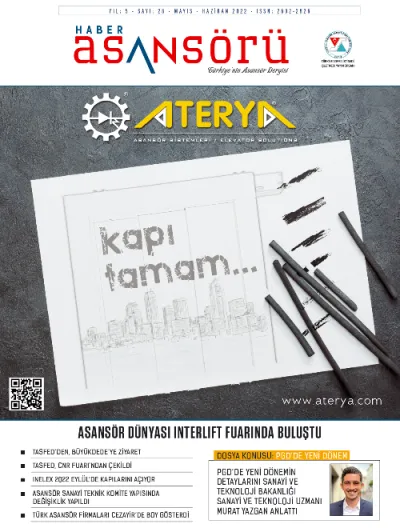
LOSS OF GOODS IN TRANSPORTATION OF GOODS
LWY. ERDEM SERDAR VURGUN
TASFED Authorised
—
In the event that the goods are lost during transport, the damage must be claimed within the statute of limitations, so that the carrier, who is a prudent merchant, can be held responsible for the damage. In addition, the owner of the rights has to prove the contract of carriage, the delivery of the goods, what the goods are and the amount of damage.
—
The act of taking the goods from the sender and delivering them to the recipient requires a professional organisation. It is normal for this large organization to experience disruptions from time to time. The extraordinary increase in cargo transaction volume after the onset of the pandemic has also increased the rate of disruptions. In this article, we briefly touched on the legal conditions of the parties in case of loss of the cargo.
The basic legislation in terms of goods transport is the Turkish Commercial Code. Transportation works are regulated in the Article 850 and the following articles of the Law.
According to the law, the carrier is obliged to take the goods to the destination with the contract of carriage and deliver them to the person that is the recipient there, in return, the sender is obliged to pay the carrier the transportation fee.
If the carrier never fulfils its delivery obligation, the goods are considered lost. According to the law, if the goods are not delivered within twenty days following the transportation period, the owner of rights may regard it as lost. Of course, waiting for twenty days is not a condition. If it has already been determined that the goods are lost, there is no need to wait for twenty days.
If the goods are lost, the owner of the rights can claim the right from the carrier within the limitation period.
As a rule, the statute of limitations is one year. However, if the goods are lost due to an act or omission committed by the carrier's wilful or reckless behaviour and with the awareness of the possibility of such damage, the statute of limitations is three years.
The carrier is responsible for the damages arising from the loss of the goods during the period from the receipt of the goods to the delivery of the goods. However, if the damage is caused by the reasons that the carrier cannot avoid and prevent its consequences despite the utmost care, the carrier is relieved of its liability.
The carrier is responsible for the acts and omissions of its own personnel and the persons it uses for the fulfilment of the transport, during the performance of their duties, just as its own acts and omissions.
In case of loss of the transported goods, the sender must prove:
S/he has made a contract of carriage,
S/he has delivered the good to be sent in accordance with this contract,
What the good to be sent is;
and the amount of the damage.
At this point, the consignment note is important. According to the law, the consignment note signed by both parties constitutes proof that the contract of carriage was made, its content and the receipt of the goods by the carrier.
It should be noted right away that issuance of a transport document is not obligatory. Even if the consignment note is not issued according to the law, a carriage contract is formed with the mutual and appropriate will of the parties. Delivery of the goods to the carrier is presumed to exist in the contract of carriage.
It is recommended to issue a consignment note and have a copy signed by the carrier. Unfortunately, the problems that may be experienced in the matter of proof cannot be overcome by mentioning that there is a record in the carrier's system.
If a consignment note has not been issued, the carrier has to sign a freight bill containing sufficient information about the goods and transportation and give it to the sender upon the request of the sender.
In addition, pursuant to paragraph 5 of Article 230 of the Tax Procedure Law, in cases where the goods are transported or made to be transported by the seller to be delivered to the buyer, in case the delivered goods are transported by the buyer or have the goods transported, the buyer must issue a waybill for the goods transported or have it transported, and it must be kept in the vehicle.
Likewise, pursuant to Article 8 of the Road Transport Law, the consignor is obliged to inform the carrier of the type, quantity and qualities of the goods, as well as other important information, fully and accurately.
The owner of the right must also prove the damage s/he suffered due to the loss of the goods.
Where the carrier is liable to pay compensation for the complete or partial loss of the goods, this compensation is calculated based on the value of the goods at the time and place of receipt for carriage.
In case of complete loss of the goods, compensation is limited to the amount covering 8.33 Special Drawing Rights (1 SDR is approximately 1.40 USD) for each kilogram of the not-net weight of the goods.
The carrier, which is proven to have caused the damage by an act or omission committed with an intentional or reckless behaviour and with the awareness of the possibility of such damage, cannot benefit from this limitation of liability.
In the event that the goods are lost during transport, the damage must be claimed within the statute of limitations period in order to hold the carrier, who is a prudent merchant, responsible for the damage. In addition, the owner of the rights has to prove the contract of carriage, the delivery of the goods, what the goods are and the amount of damage. During the delivery of the goods to the carrier, the issue of a consignment note or at least a freight bill will help the right holder to fulfil his/her burden of proof.




























